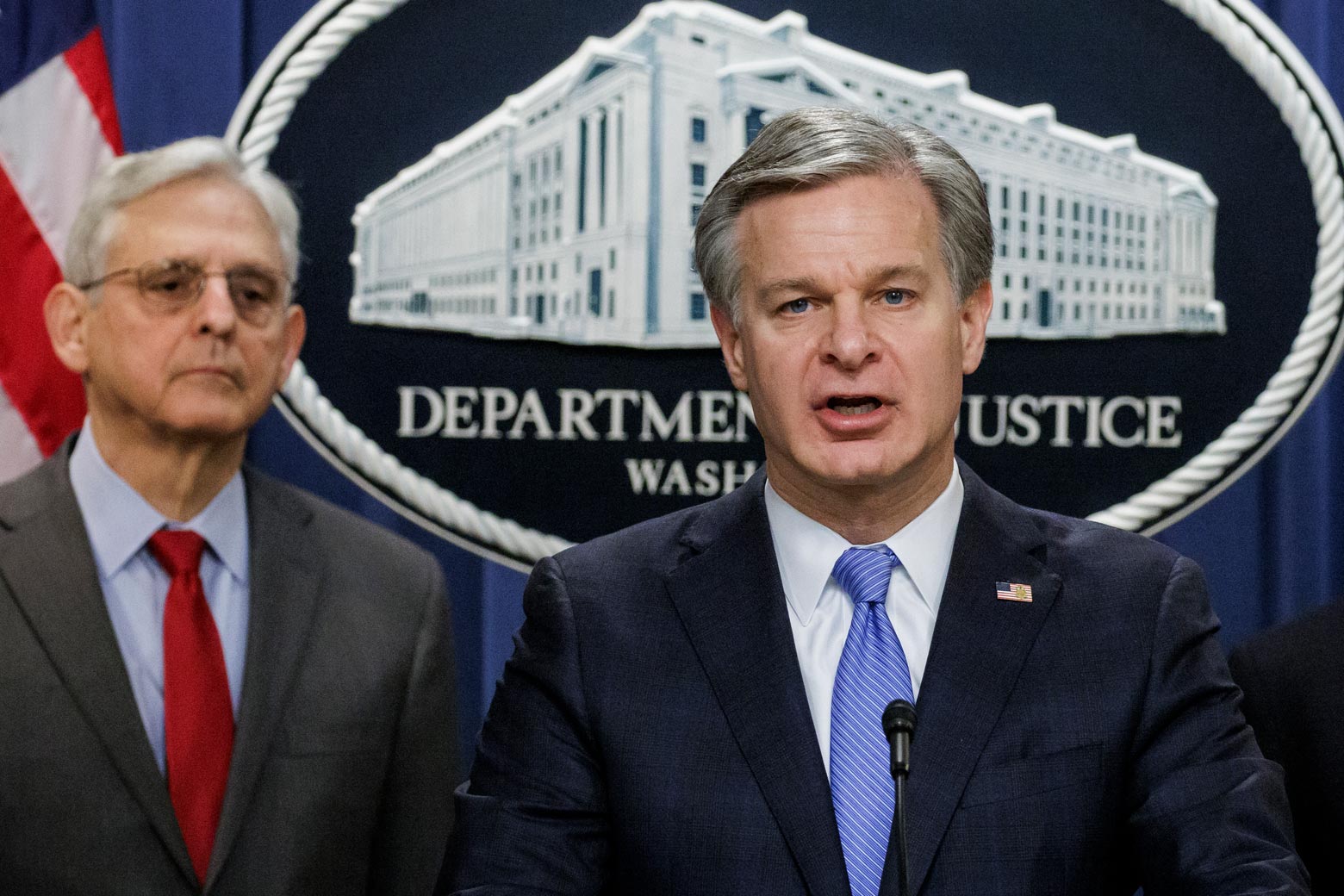When President Joe Biden said “journalism is not a crime” last April, federal prosecutors in Tampa, Florida, apparently took that as a challenge. Not a crime yet.
The next month, FBI agents raided the home of journalist Tim Burke. He is scheduled to be arraigned in the coming weeks under the Computer Fraud and Abuse Act (CFAA) and wiretap laws for finding and disseminating unaired Fox News footage of Kanye West’s antisemitic rant to Tucker Carlson. The indictment doesn’t accuse Burke of hacking or deceit. Instead, its theory is that he didn’t have permission to access the video, even though it was at a public, unencrypted URL that he found using publicly posted demo credentials.
But finding things that the powerful don’t want found is essentially the definition of investigative journalism—which, as Biden said, is not criminal in this country.
A recent court filing heightens concerns about whether prosecutors hid from the judge who authorized the raid that Burke was a journalist. By doing so, they may have avoided scrutiny of whether their investigation—and eventual indictment—of Burke complied with the First Amendment, federal law, and the Department of Justice’s own policies.



It’s not “gray” at all. This has been a settled matter of Law since the 1980s. Accessing systems without permission, no matter how you acquired the credentials, is illegal.
This can be separate from the videos. If they were publicly available, intentionally or not, then he should be clear on those charges but that doesn’t change the unauthorized access part.
If they were behind any sort of credential, they’re not publicly available. It doesn’t matter that the website was poorly configured.
This would be like arguing a property is public because the maintenance key box still uses the default password.
It’s a bit confusing but as I understand it this is how it worked.
The video files were publicly available BUT the URL’s to them were unknown. You could get to them without signing into the system IF you knew the URLs…which nobody did.
This guy signed into the Content Management System, which he wasn’t authorized to do, using default “demo” credentials he found elsewhere. After doing that he could see the URLs for the files and was then able to download them without logging in. He may also have distributed the URLs so that other people could download them, again without having to log in.
Him signing into the CMS without Authorization was likely a crime but the downloading of the videos likely wasn’t since they were publicly available if you knew they existed and how to reach them.
That is incorrect.
They were never actually aired or released to the public.
Fox News never released them. The service used by Fox (StreamCo) routinely has uploads that are never released, they upload them live so as to expedite streaming while people ax whatever doesn’t work for whatever reason.
Again, to use the luggage analogy, this would be like someone grabbing your luggage off the checked baggage carousel, plugging in the default password, copied addresses, whose doors were unlocked. It doesn’t matter that the doors are unlocked- those files are still private.
The files themselves were never intended to be publicly released. He bypassed security in the system by exploiting flaws and accessing data he was not authorized to access.
There is no gray area there. Is Kanye West a raging bigot? Yes. Did Burke break the law to reveal that? Also yes.
Freedom of the Press and first amendment protection doesn’t mean they can break the law. It’s unfortunate because he seems to be one of the good ones.
They were publicly available, without credentials, if you knew how to get to them.
The luggage analogy sucks. A better analogy is someone taking a stack of paperwork and putting it behind a chair in a coffee shop. You can’t see the papers and don’t know they are there unless someone tells you about them. The papers aren’t intended for public consumption but they’re being stored in a publicly available space.
Why are you acting like I don’t agree with you on this? You can read my other comments in here and see that I do.
He apparently accessed a system with credentials that he wasn’t authorized to use and that’s a crime. What may not be a crime is downloading the videos. If those were available to the public, no matter how obscured, without needing credentials to access them then they were in fact publicly available.
It’s two separate actions and one is likely criminal while the other may not be.
I don’t give a shit about Kanye and I addressed Burke in a previous comment.
In your example, the papers are probably mislaid property, not abandoned property. Taking them would still be a crime, but somebody stumbling on them, there probably wouldn’t be any crime in reading them (similar to opening a lost wallet to pull the driver’s license. Now, if they contacted the owner, and they said “keep it” or something, or if they couldn’t identify the owner, that’s different, but didn’t happen here)
Unlike the luggage, which wasn’t misslaid- the files were where they were supposed to be.
As for accessing the files, that becomes a crime because he had to use knowledge taken from the prior crime. It doesn’t matter if your car is parked in a public lot; I steal your proximity keys (the URLs), that’s a crime. The car letting me in doesn’t suddenly make driving the car off not a crime.
There was no reasonable means of getting those files without first figuring out what urls they were at, and he knew that. He’s not some kid plugging in random URLs and stumbling in.